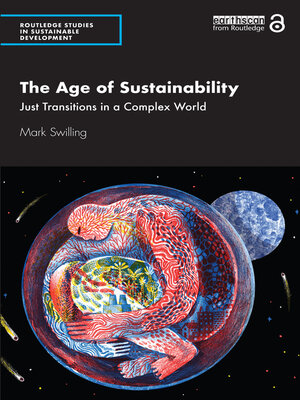The Age of Sustainability
ebook ∣ Just Transitions in a Complex World · Routledge Studies in Sustainable Development
By Mark Swilling

Sign up to save your library
With an OverDrive account, you can save your favorite libraries for at-a-glance information about availability. Find out more about OverDrive accounts.
Find this title in Libby, the library reading app by OverDrive.



Search for a digital library with this title
Title found at these libraries:
| Loading... |
With transitions to more sustainable ways of living already underway, this book examines how we understand the underlying dynamics of the transitions that are unfolding. Without this understanding, we enter the future in a state of informed bewilderment.
Every day we are bombarded by reports about ecosystem breakdown, social conflict, economic stagnation and a crisis of identity. There is mounting evidence that deeper transitions are underway that suggest we may be entering another period of great transformation equal in significance to the agricultural revolution some 13,000 years ago or the Industrial Revolution 250 years ago. This book helps readers make sense of our global crisis and the dynamics of transition that could result in a shift from the industrial epoch that we live in now to a more sustainable and equitable age. The global renewable energy transition that is already underway holds the key to the wider just transition. However, the evolutionary potential of the present also manifests in the mushrooming of ecocultures, new urban visions, sustainability-oriented developmental states and new ways of learning and researching.
Shedding light on the highly complex challenge of a sustainable and just transition, this book is essential reading for anyone concerned with establishing a more sustainable and equitable world. Ultimately, this is a book about hope but without easy answers.






